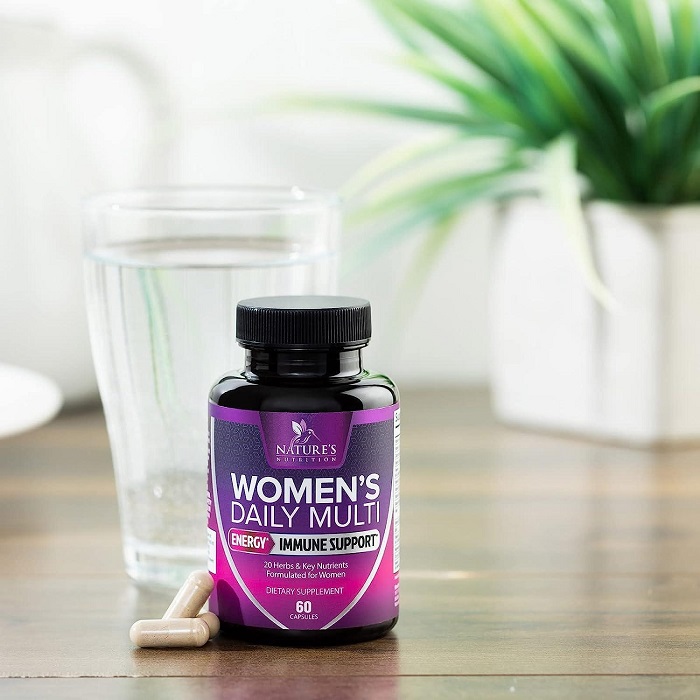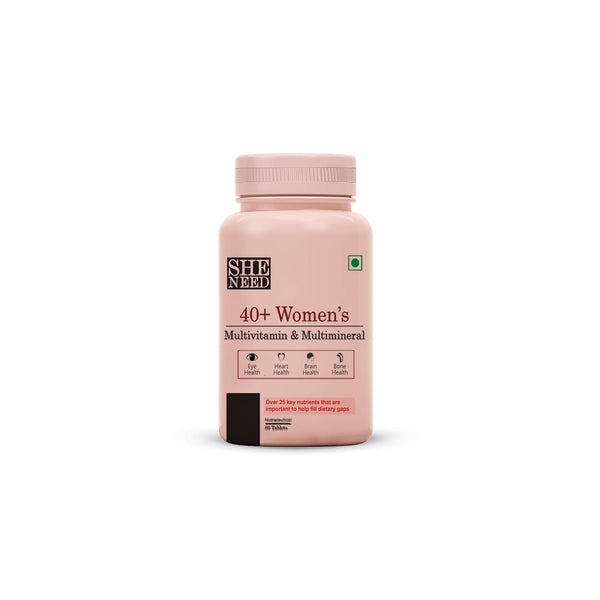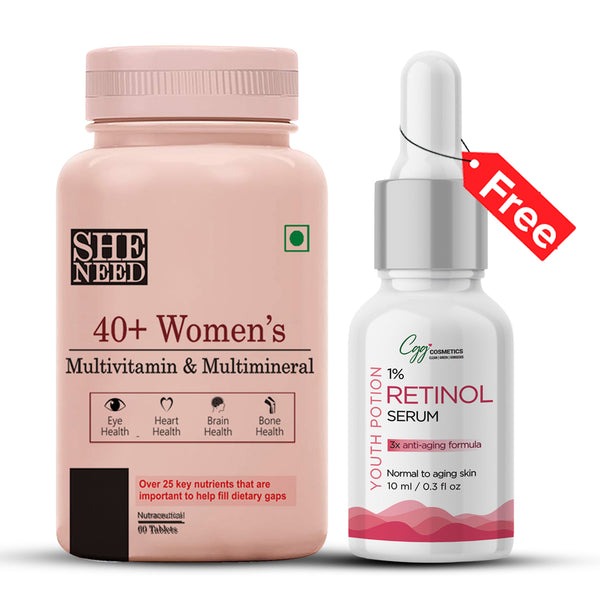
Introduction to Women’s Vitamins
Navigating the world of women’s vitamins can be complex. With countless products on the market, finding the right one for you might feel overwhelming. But understanding the basics is the first step on this journey. Women’s vitamins cater to specific nutritional needs. From adolescence to menopause, these needs can change. A good vitamin regimen can support overall health, fill nutritional gaps, and provide energy. It’s all about balance. Too little of a vitamin, and you might face deficiencies. Too much, and you risk other health issues. The key is to choose wisely. In this guide, we will simplify this process. We’ll help you identify which vitamins are essential for women’s health. We’ll also discuss how to recognize signs of deficiency and what factors to consider when choosing your supplements. Stick with us to learn how to make informed decisions about women’s vitamins for optimal health and well-being.
Essential Vitamins for Women’s Health
To maintain good health, women need a mix of vitamins unique to their needs. Certain vitamins play vital roles at different stages of a woman’s life. Here are key vitamins every woman should consider:
- Vitamin D is crucial for strong bones and immune health. It aids in the absorption of calcium and supports brain function.
- Calcium is not a vitamin, but a mineral that works with Vitamin D. It’s essential for bone health, particularly as women age and risk for osteoporosis rises.
- Iron supports red blood cell production and carries oxygen through the body. Women, especially those with heavy menstrual cycles, need iron to prevent anemia.
- Vitamin B12 is important for nerve function and the creation of DNA and red blood cells. It’s found mainly in animal products, so vegetarians and vegans must be mindful to get enough.
- Folic acid, or folate, is vital for women of childbearing age. It can prevent birth defects and is important for DNA synthesis and repair.
- Vitamin C is famous for its immune booster properties. It also helps in the repair of tissues and the absorption of iron.
- Vitamin E is an antioxidant that protects cells from damage. It also supports the health of the skin and eyes.
- Omega-3 fatty acids, while not vitamins, are important for heart health and brain function. They can be found in supplements like fish oil.
Ensuring a balanced diet is the best way to get these essential nutrients. However, women’s vitamins can supplement when dietary intake is not enough. Remember to consult your healthcare professional before starting any new vitamin regimen. This ensures safety and that the supplements cater to your personal health needs.
Factors to Consider When Selecting Vitamins

When choosing women’s vitamins, several factors are crucial to consider for effective results.
- Personal Health Needs: Each woman has unique nutritional requirements. Assess any health conditions, dietary restrictions, or specific health goals you have. For instance, if you’re anemic, you may need more iron.
- Age and Life Stage: Your age and stage in life largely dictate the vitamins you need. Older women may need more calcium and vitamin D for bone health, while younger women might prioritize folic acid.
- Dietary Habits: Look at your typical diet. If you’re vegetarian or vegan, you may lack vitamin B12 and iron, which are abundant in animal products.
- Lifestyle: Active women or those with high-stress lives might benefit from B vitamins for energy and stress relief.
- Quality and Brand: Choose reputable brands with proven quality. Check for certifications from independent organizations that test supplements.
- Bioavailability: This refers to how well a vitamin is absorbed. Some forms of vitamins are easier for the body to use than others.
- Interactions with Medications or Other Supplements: Vitamins can interact with medications and other supplements. It is necessary to check for potential interactions.
- Cost and Convenience: Consider how much you’re willing to spend and the convenience of the vitamin regimen. The best vitamin plan is one you can stick with consistently.
Remember to integrate these factors with your healthcare professional’s advice before you start taking new vitamins. They can guide you in selecting products that are safe and beneficial for your specific health needs.
Vitamin Deficiencies in Women: What to Look Out For
Being aware of vitamin deficiencies is crucial for women. A lack of essential nutrients can lead to various health problems. Here are signs to watch for:
- Fatigue and Weakness: These symptoms may suggest iron deficiency, especially in menstruating women.
- Bone Pain and Fractures: These could be signs of low vitamin D and calcium levels, which are important for bone strength.
- Memory Problems: Difficulty concentrating or memory issues might indicate low levels of Vitamin B12, especially in older adults.
- Mood Changes: If you experience mood swings or depression, it could be due to a lack of certain B vitamins, including folate.
- Skin Issues: Dry or flaky skin can hint at a Vitamin E deficiency, while bruising easily may suggest a lack of Vitamin C.
- Hair Loss: This might be caused by low levels of iron or Vitamin D.
- Tingling and Numbness: These sensations in your hands and feet could be due to a Vitamin B12 deficiency.
- Vision Problems: Difficulty seeing in low light could be linked to a lack of vitamin A.
It’s important to not ignore these signs. Consult a healthcare professional if you suspect a deficiency. They can provide tests to confirm this and recommend appropriate supplements or dietary changes.
The Role of Age and Life Stage in Vitamin Choices
Your age and life phase play a pivotal role in the vitamins you should take. As a woman, your body experiences different nutritional demands throughout life. From reproductive years to post-menopause, each transition influences vitamin needs.
- Reproductive Years: During these years, women often need more iron due to menstruation. Folic acid is also critical for those considering pregnancy.
- Pregnancy and Lactation: Increased intake of folic acid, iron, and calcium support fetal growth and maternal health.
- Menopause and Beyond: Post-menopause, women’s needs shift again. More calcium and vitamin D may be necessary to maintain bone density.
- Senior Years: Older women typically need higher doses of Vitamin B12 and antioxidants to support cognitive health and vitality.
The exact vitamins needed might differ based on individual health situations. However, understanding these general phases helps in making informed decisions. Always discuss with a healthcare provider for personalized advice. They can assist in tailoring your vitamin regimen to your unique needs as you age.
Best Practices for Taking Women’s Vitamins

Taking women’s vitamins effectively requires more than just purchasing supplements. It involves a series of best practices to ensure you’re maximizing their benefits for your health. Here are some top tips:
- Consistency is Key: Make taking your vitamins part of your daily routine. This helps your body maintain steady levels of nutrients.
- Pair Vitamins with Meals: Some vitamins absorb better with food. Take them during meals to improve efficacy.
- Stay Hydrated: Water aids in the absorption of vitamins. Drink plenty of fluids throughout the day.
- Follow Recommended Dosages: Never exceed the advised amount. Taking more doesn’t mean better results and can be harmful.
- Store Properly: Keep vitamins away from heat, light, and moisture to preserve their potency.
- Adapt When Necessary: Your needs may change. Adjust your vitamin regimen according to your health and lifestyle.
- Avoid Duplication: If you’re taking a multivitamin, you might not need separate supplements. Check labels to prevent overlap.
- Mind the Timing: Some vitamins might interfere with sleep if taken late. Plan your intake accordingly.
Incorporating these practices will assist in enhancing your health and ensuring you get the most out of your women’s vitamins. Remember, balance is essential, and moderation is the key to avoiding any potential adverse effects from overconsumption. If ever in doubt, seeking advice from a healthcare professional is recommended to tailor your vitamin intake to your individual health needs.
Understanding the Different Types of Women’s Vitamin Supplements
When it comes to women’s vitamins, the variety can be as diverse as the women who take them. Understanding the different types of vitamin supplements can help tailor your regimen to better suit your specific needs. Here’s a breakdown of common supplement types you’ll encounter on your wellness journey:
- Multivitamins: These are broad-spectrum supplements containing a range of vitamins and minerals. They aim to fill nutritional gaps in your diet and are a good starting point for general health maintenance.
- Individual Vitamins: Sometimes specific health concerns call for individual vitamins. For instance, if testing reveals a Vitamin D deficiency, a dedicated Vitamin D supplement might be recommended.
- Specialty Formulas: There are vitamins tailored for unique needs, such as prenatal vitamins for pregnancy which have higher folic acid and iron levels, or menopausal formulas focusing on bone health.
- Herbal Supplements: These are not vitamins but can support health in various ways. Examples include echinacea for immune support or valerian root for sleep.
- Omega-3 Supplements: These fatty acids are crucial for heart and brain health and aren’t always easy to get from food alone.
- Age-Specific Formulas: Vitamins formulated for different age groups ensure you get the right nutrients for your stage in life, such as higher calcium in formulas for older women.
- Targeted Blends: Blends focus on specific health aspects, like skin and hair supplements enriched with biotin or antioxidants for cellular support.
Choosing the right type of vitamin supplement involves understanding your body’s needs, dietary habits, and any health goals or conditions you have. Always check with a healthcare professional before adding new supplements to your regimen. They can provide the guidance needed to make the best choices for your health.
When to Consult a Healthcare Professional About Vitamins

It is essential to know when to seek advice from a healthcare professional regarding women’s vitamins. Here are situations where consulting a doctor or a dietitian is wise:
- Before Starting a New Vitamin Regimen: To ensure safety and effectiveness, get a professional opinion.
- If You Have a Health Condition: Some vitamins can affect medical conditions or interact with medications.
- During Pregnancy or Breastfeeding: Specific nutrients are critical at this time. Professional guidance can optimize maternal and fetal health.
- Experiencing Possible Deficiency Symptoms: If you have signs of a deficiency, a professional can confirm it with tests.
- Postmenopausal Changes: Shifts in hormone levels can change your vitamin needs. A professional can help adjust your regimen accordingly.
- When Considering High Doses: High doses can be dangerous. Discuss proper dosages with a healthcare expert.
- For Customized Health Goals: A tailored plan can support personal fitness, weight loss, or other health goals effectively.
In summary, regular check-ins with a healthcare professional can keep your vitamin intake on track. They ensure your supplement regimen is safe and matches your unique health needs. Remember to factor in their advice with your personal research on women’s vitamins. This will aid in maintaining optimal health through life’s different stages.





